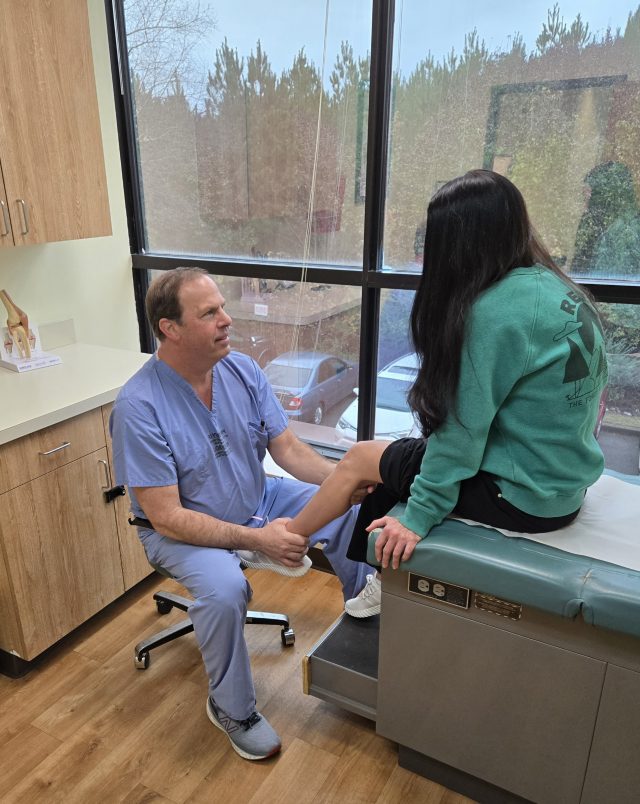Orthopedic surgery can be a life-changing procedure for individuals suffering from joint pain, mobility issues, or injuries that hinder their daily lives. Whether it’s a knee replacement, shoulder repair, or another procedure, proper physical and mental preparation can significantly enhance the recovery process and ensure the best possible outcome. Dr. Bret Sokoloff of Memphis provides a comprehensive look at what to expect when you proceed with surgery until you’re on the road to recovery, offering practical tips for a smoother journey.
Understanding the Purpose of Your Surgery
The first step in preparing for orthopedic surgery is understanding the reason behind the procedure and the expected benefits. Your doctor will explain why surgery is necessary and how it can help alleviate pain, restore function, or prevent further joint deterioration. Dr. Bret Sokoloff of Memphis emphasizes that a clear understanding of the surgery’s purpose and outcomes can help you set realistic expectations and make informed decisions about your health.
Pre-Surgery Consultations: Your Roadmap to a Successful Procedure
Once you make your decision regarding the surgery, your surgeon will schedule a series of consultations and assessments to prepare you for the procedure. Dr. Bret Sokoloff of Memphis explains that these appointments typically include the following:
- Medical Evaluation and Imaging: Your doctor will review your medical history and assess any underlying conditions that may impact the surgery. You’ll likely undergo imaging tests like X-rays, MRIs, or CT scans, which provide your surgeon with a detailed view of the area being operated on.
- Preoperative Physical Exam: This comprehensive physical assessment ensures you are physically prepared for surgery. Your doctor will evaluate your overall health, and you may be referred to specialists if there are any underlying health issues, such as heart conditions or diabetes, that need to be managed before surgery.
- Anesthesia Consultation: During this consultation, an anesthesiologist will discuss the type of anesthesia you will receive—usually general anesthesia, which puts you to sleep, or regional anesthesia, which numbs only the area being operated on. This discussion is essential, as the anesthesiologist will consider factors like your health history, weight, allergies, and any past reactions to anesthesia to determine the safest option for you.
- Review of Medications and Supplements: Your surgeon will ask about all medications, supplements, and over-the-counter drugs you’re taking, as some may interfere with surgery or increase the risk of complications. You may be advised to stop taking certain medications, such as blood thinners, several days before surgery.
- Physical Therapy and Exercise Plan: In some cases, your doctor may recommend specific exercises or physical therapy sessions to strengthen the muscles around the joint or area being operated on. Pre-surgery conditioning can improve your postoperative recovery and reduce the risk of complications.
Preparing Physically for Surgery
Taking steps to improve your physical health before surgery can make a significant difference in your recovery. Dr. Bret Sokoloff of Memphis provides some important considerations:
- Exercise Regularly: If possible, engage in a low-impact exercise regimen to build muscle strength around the joint or body part being operated on. Stronger muscles can help support the joint, leading to better postoperative outcomes.
- Eat a Nutrient-Rich Diet: A balanced diet rich in vitamins, minerals, and protein will help your body heal more effectively. Protein, in particular, plays a crucial role in muscle repair and recovery. Avoid any crash diets or drastic changes, as good nutrition is essential for maintaining strength before surgery.
- Manage Your Weight: If you are overweight, your doctor may suggest a weight loss plan, as excess weight puts additional strain on the joints, which can hinder recovery. Shedding even a few pounds can improve the success of your surgery and reduce complications.
- Quit Smoking and Limit Alcohol: Smoking can significantly delay healing by reducing blood flow and oxygen to tissues. If you smoke, consider a smoking cessation program before surgery. Additionally, limit alcohol intake, as it can interfere with anesthesia and certain medications.
- Sleep Well and Rest: Getting adequate sleep and rest before surgery helps reduce stress and supports your immune system, which plays a vital role in healing. Aim for a consistent sleep schedule and practice good sleep hygiene.
Preparing Mentally for Surgery
Preparing mentally and emotionally for a surgery is just as important as physical preparation. Dr. Bret Sokoloff of Memphis understands that many people experience anxiety before a surgical procedure, but understanding the process and knowing what to expect can alleviate much of this stress.
- Educate Yourself: Understanding the procedure, the steps involved, and the expected recovery time can give you peace of mind. Ask your doctor detailed questions, such as how long the surgery will take, what to expect during recovery, and any potential risks.
- Set Realistic Expectations: Knowing that recovery can take time and patience will help you mentally prepare for the journey ahead. Be aware that, depending on the type of surgery, it may take several weeks to months before you see full results.
- Practice Stress-Relief Techniques: Techniques like deep breathing, meditation, and visualization can help reduce pre-surgery anxiety. Practicing these techniques beforehand can help you stay calm in the days leading up to the surgery and even improve your experience post-surgery.
- Enlist Support from Friends and Family: Surgery and recovery can be challenging, so reach out to your support system for help with tasks, emotional support, and transportation needs. Having a trusted companion available can make the process less daunting.
- Prepare a Positive Mindset: Focus on the benefits the surgery will bring and visualize a successful outcome. This optimistic approach can help you approach surgery with a constructive and hopeful outlook.
Practical Preparations Before Surgery
Making practical arrangements ahead of time can ensure a smoother transition from surgery to recovery. Dr. Bret Sokoloff of Memphis provides some steps to consider:
- Set Up a Recovery Space: Prepare a comfortable area in your home where you can rest and recover. Arrange for easy access to essentials like medications, water, a phone, and anything else you may need close by.
- Arrange for Transportation: Since you won’t be able to drive immediately after surgery, arrange for transportation to and from the hospital. You may also need assistance for follow-up appointments.
- Prepare Meals: Prepare or stock up on easy-to-reheat meals to ensure you have nutritious options during recovery. Having meals ready to go can relieve stress and help you focus on healing.
- Gather Essential Supplies: Stock up on any medical supplies you might need, such as bandages, ice packs, or assistive devices (like crutches or a cane). Your doctor will inform you of any specific items that may be required.
- Plan for Assistance with Daily Tasks: Simple tasks like grocery shopping, cleaning, and cooking may be challenging in the first few days or weeks after surgery. Arrange for a family member, friend, or professional caregiver to assist you as needed.
What to Expect During Recovery
Recovery times vary depending on the type of surgery and individual health, but Dr. Bret Sokoloff of Memphis shares some general steps you can expect post-surgery:
- Pain Management: Your doctor will prescribe pain medications to manage postoperative discomfort. Follow the prescribed dosage to control pain and stay ahead of discomfort, as this can help you participate in physical therapy more effectively.
- Physical Therapy: Physical therapy is often a vital part of orthopedic recovery. Your therapist will guide you through exercises to restore range of motion, strength, and flexibility. Be patient and follow your therapist’s guidance closely, as rehabilitation is crucial to achieving a full recovery.
- Follow-Up Appointments: Regular check-ups with your surgeon will help monitor your progress and address any concerns. During these visits, your doctor may adjust your treatment plan based on your healing.
- Lifestyle Adjustments: You may need to temporarily adjust certain activities or routines to protect the surgical site. Avoid heavy lifting, strenuous activities, and any movement that may strain the area.
- Listen to Your Body: Rest and take breaks when needed, and don’t rush the healing process. Each person’s recovery is unique, so pay attention to how you’re feeling and communicate any unusual symptoms to your doctor.
Preparing for orthopedic surgery involves careful planning and a positive mindset. Dr. Bret Sokoloff of Memphis emphasizes that by taking the time to prepare both physically and mentally, arranging practical assistance, and understanding the recovery process, you can maximize your chances of a successful outcome. Orthopedic surgery is a significant step towards improving your quality of life, so approach it with confidence and patience, knowing that with time and dedication, you’re working toward a healthier, more active future.








